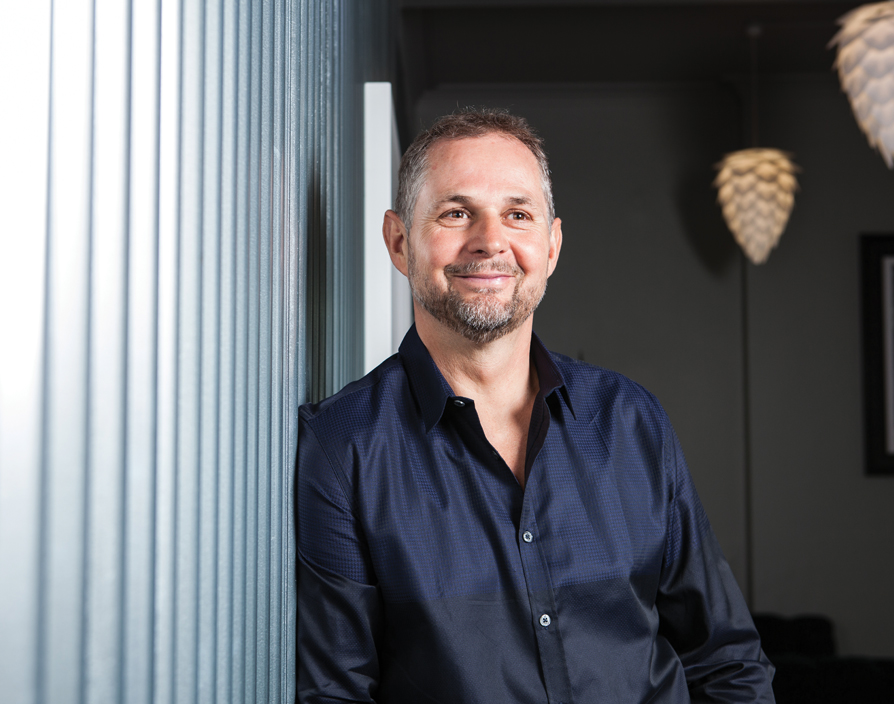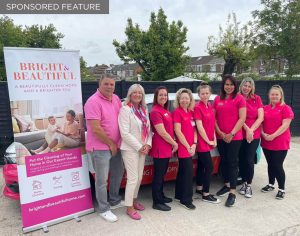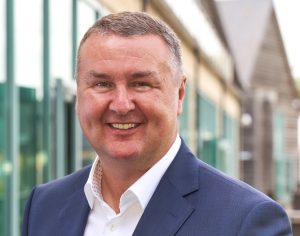Even before Steve Bolton founded Platinum Property Partners and Platinum Business Partners, the property investment and e-commerce franchises, entrepreneurialism and property have long played a significant role in his life. Aged just eight, he was introduced to the stock market by his father, a former Lancashire miner turned professional footballer. “He gave me this little black book and he said ‘right, pick ten stocks’,” says Bolton. “It fascinated me that you could have the same amount of money, put it into something and see it go up or go down.” While he admits most of the stocks he picked dropped or went bust, this interest in investing and speculating was cemented at age 11 when his parents bought a block of flats to rent out as a house in multiple occupations (HMO). “Seeing them take that entrepreneurial leap and invest their life savings in a property business had quite a forming effect on my entrepreneurial career,” Bolton says.
Despite this intellectual curiosity, Bolton didn’t exactly thrive in the education system. “I did fairly well at primary school and junior school: I was very sporty and quite bright,” he says. “But as soon as I went to secondary school, I hated it.” Seeing few practical applications for the things he was being taught, Bolton began to feel increasingly constrained by academic life. Moreover, being written off by some of his teachers left him plagued with doubts about his future. “My educational experience didn’t just mean I didn’t learn a great deal,” says Bolton. “Being told ‘you’ll never amount to anything, you’ll never go anywhere’ damaged my self-confidence.”
In light of this, it’s not surprising that Bolton decided to leave school and enter the world of work. “The good thing is that my parents encouraged me to get on with it,” he says. “My dad said: ‘You’re on your own – you’ll have a roof over your head but as soon as you leave school there’s no money.” After a fairly inauspicious start working in a greasy spoon on Bournemouth seafront and stacking shelves in a supermarket, Bolton got his first big break when a woman in his mother’s hair salon revealed she was on the hunt for someone to help out at her outdoor pursuits centre down in Lyme Regis. “I had an interview after she had her hair cut and literally the next day I packed my bags,” he says.
Before long, the short-term position had become a two-year apprenticeship and Bolton quickly began rising through the ranks, eventually finding himself responsible for building out the activity department at the age of 19. “I was almost what they call an intrapreneur,” he says. “At the time, they were only doing a couple of outdoor pursuits and I grew that whole division to the point that it was generating really significant income.” By this time other players in the industry were clearly starting to sit up and take notice: in 1992, Bolton was headhunted to build a new national outdoor pursuits centre, something he took to with gusto. “I built that right from the ground up, which gave me a taste of starting a business,” he says.
Having whet his entrepreneurial appetite, Bolton found himself hungry for more. “I got fed up of working for somebody else and not getting very well paid for it,” he says. “I wanted the excitement and the challenge of running my own company.” However, there was one slight drawback: Bolton didn’t have a new business concept in his back pocket waiting to go. Fortunately, Ropes Course Development, a novel company that had built a high and low rope course, caught his eye and intrigued he decided to pen a letter to its founder Nick Moriarty to see whether he fancied entering into a partnership. “Like franchisees, I found somebody else who had already gone through that pain of starting something and went into business with him,” he says. “We met for dinner, shook hands on a deal and started working together the following week.”

Josh Russell
When he isn't tooling around on trains in a tux like the Daniel Craig of the Greater Anglia transport system, Russell spends his time living the glamourous life of an enterprise journalist, judging Digital Business of the Year at the National Business Awards and attending conferences like NixonMcInnes' Meaning 2013. However, like all good secret agents, Russell lives a double life - in his case, as a closet revolutionary. Social enterprise, sustainable business and collaborative practices are his true passions, something that he has had plenty of opportunity to air in his features here at Elite Franchise.

Josh Russell
When he isn't tooling around on trains in a tux like the Daniel Craig of the Greater Anglia transport system, Russell spends his time living the glamourous life of an enterprise journalist, judging Digital Business of the Year at the National Business Awards and attending conferences like NixonMcInnes' Meaning 2013. However, like all good secret agents, Russell lives a double life - in his case, as a closet revolutionary. Social enterprise, sustainable business and collaborative practices are his true passions, something that he has had plenty of opportunity to air in his features here at Elite Franchise.
































